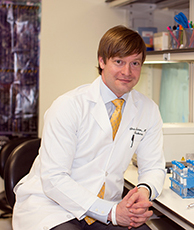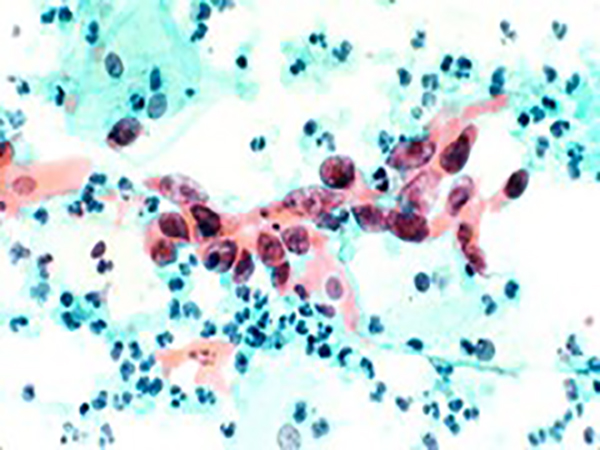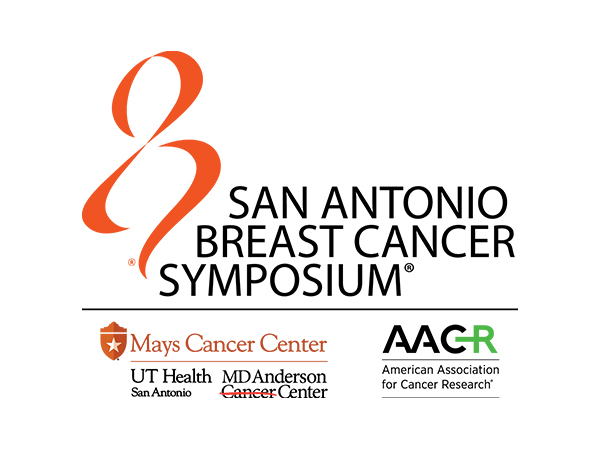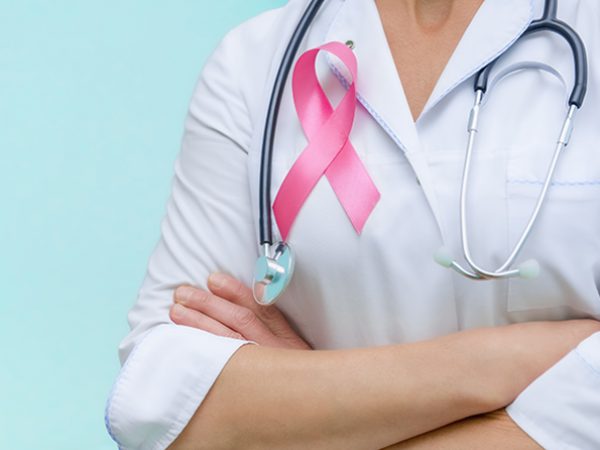AACR Workshop Inspires Early-career Physician-Scientist
Every year, the American Association for Cancer Research (AACR) organizes a robust program of educational workshops for early-career investigators to help equip them with the knowledge, skills, and connections they need to sustain their careers and power progress against cancer over the coming decades. The workshops cover different areas of cancer research and are tailored to early-career investigators across the spectrum of cancer research – from epidemiologists, to biostatisticians, to basic scientists, to clinical trialists.
The longest running AACR workshop is the annual Molecular Biology in Clinical Oncology Workshop. This year’s workshop, which began Sunday, July 19, is providing 50 early-career physician-scientists from 25 institutions in five countries the opportunity to learn about the latest concepts and techniques in molecular biology and experimental design in hypothesis-driven translational cancer research, sharpen their skills in five hands-on laboratories, gain mentorship in grant writing, and make connections that will help advance their careers. Over the years, many physician-scientists have gained a deep understanding of molecular biology at the outset of their successful careers by attending the Molecular Biology in Clinical Oncology Workshop.
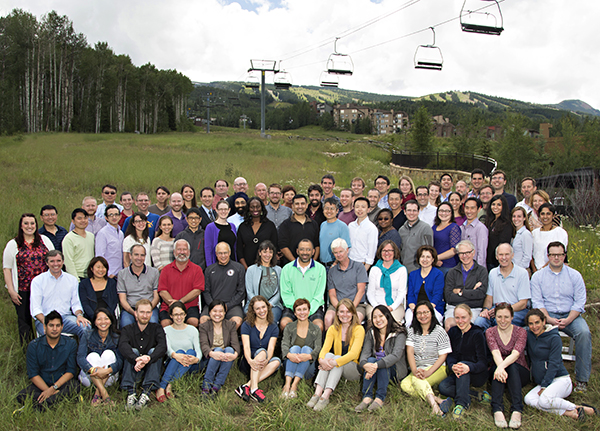
Early-career physician-scientists gathered in Snowmass Village, Colorado to learn from top investigators in the field of cancer research at the AACR’s Molecular Biology in Clinical Oncology Workshop, July 19-26.
One such physician-scientist is Christopher B. Benton, MD, who was recently appointed an assistant professor at The University of Texas MD Anderson Cancer Center. Benton says that his participation in the 22nd Annual Molecular Biology in Clinical Oncology Workshop, in 2013, was memorable to this day. “I had an amazing experience,” says Benton. “Attending the workshop really helped me grow as a physician-scientist. I learned an enormous amount, met so many current leaders in the field, and made many connections with my peers.”
Benton first became interested in research while studying for his undergraduate degree at the Massachusetts Institute of Technology, but it was during his clinical fellowship at MD Anderson that he decided academic medicine was the career for him. “Scientific discovery is very rewarding,” says Benton, “and to see it have a positive impact on patients is, for me, the ultimate reward.”
Having made the decision, Benton began to look for opportunities that could further his career development. A colleague at MD Anderson, another fellow pursuing a career as a physician-scientist, recommended the AACR’s Molecular Biology in Clinical Oncology Workshop. “I remember him telling me that he had learned a huge amount at the workshop and that I really should apply for it,” recalls Benton. “My mentor was also very encouraging. After reading about the workshop I realized that it wouldn’t just teach me things important to my research, it would also give me a great opportunity to network with my peers and with key leaders in the field.”
Excited to discover that the AACR offered a workshop that seemed tailored to his needs, Benton applied and was ultimately accepted to attend the 2013 workshop. “The whole week was a fantastic experience,” says Benton. “All the lectures from leaders in the field taught me something, even those that were not directly applicable to my research, which focuses on understanding the cellular makeup of leukemia. Most importantly, the lectures conveyed a sense of encouragement. They made us believe that what we are doing will drive progress and impact patients. It was very inspiring.”
Benton cites the opportunities to interact with his fellow participants and the course leaders among the most useful aspects of the workshop. He has been in contact with several course leaders since the workshop and has received both research- and career-related advice. “David Tuveson (MD, PhD, a professor at Cold Spring Harbor Laboratory) gave a very encouraging lecture at the workshop,” says Benton. “And even though his research focus is pancreatic cancer, an area outside of my specialty, I reached out to him and met him at the AACR Annual Meeting 2014. He gave me some great advice that has helped me balance my clinical and laboratory responsibilities, which has really helped my growth as a physician-scientist.”
Since the workshop, Benton has also been in contact with a number of his peers, making sure to meet up with them when opportunities arise, which is predominantly at conferences. “It is vital to connect with others who are in similar situations to yourself. It gives you a sounding board for ideas and encouragement to face career challenges.”
He has also encouraged a number of colleagues to apply for the workshop. “Any clinicians who want to make research part of their career should consider applying,” says Benton. “The learning environment at the workshop was inspirational; it put a clinical perspective on practical scientific information, reminding us of how much progress we can make in the future.”

